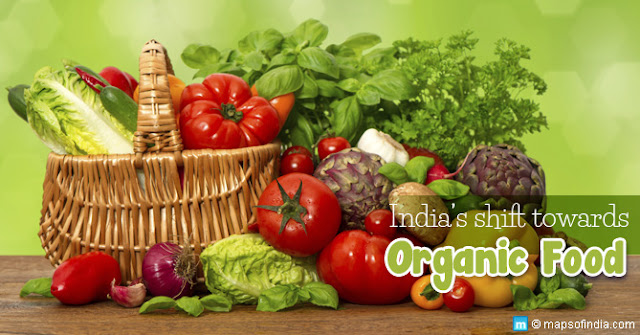Synthetic vs. Organic Fertilizers
If your plants keep dropping leaves, turning odd colors, and
generally failing to thrive, it might not be your gardening techniques
that are at fault.
There could be an imbalance in your soil that’s killing your plants. In such instances, improving your soil might simultaneously improve your chances at having a successful garden. However, it’s always a good idea to test the pH levels and the soil acidity in your garden before you start applying fertilizer. Too much of a good thing can easily be as bad as a hands-off approach.
For instance, phosphorus, which is a main component of most fertilizers, will only work at a certain pH range. Adding unnecessary nutrients can also cause environmental problems since these compounds tend to get washed away in heavy rains and can end up polluting nearby waterways.
Like most organisms, plants need a variety of nutrients in order to grow properly. These elements are normally present in the soil. When they are not, the plants suffer. Fertilizers were created to make up any soil deficiencies so that things can be grown in less than ideal spaces. However, the main nutrients found in fertilizer are nitrogen (N), phosphorus (P) and potassium (K). They’re generally listed on labels in that order as well.
Of course your plants don’t know the difference between synthetic and organic fertilizers but you will, particularly in the long run. Synthetic fertilizers are known to degrade the quality of soil over time. You constantly need more to improve your garden. Synthetic fertilizers also contain salts. These compounds not only make the soil more acidic, they keep beneficial earthworms away. Regular watering of your plants can even move the nutrients in these compounds far enough from the plant roots that they won’t do any good. In addition, synthetic fertilizers are often made from non-renewable resources.
On the other hand, organic fertilizers improve garden soil where they are used. They not only assist with water retention, they also make the soil lighter so that more air is available to the plant roots. Organic fertilizers don’t waste nutrients like their chemical counterparts. Nor are they likely to create a build-up of salts that could dampen plant growth. These types of fertilizers even tend to be less likely to burn tender plant roots than synthetic products.
The slow working nature of organic fertilizers is beneficial if you’re looking to improve your garden soil over time. This aspect can nonetheless be a downside if you’re looking for instant results. (A good organic compromise when your plants need a sudden energy boost is liquid fertilizers or foliar sprays.) Gardeners should also be aware that organic fertilizers are biologically active. This means that their components can change over time and may slightly vary with each batch.
You do need to be careful when it comes to purchasing fertilizer. Those products stating they are ‘organic’ at first glance might not actually be. Make sure you read product labels carefully. A good way to judge claims for accuracy is to check the organic fertilizer you plan on buying against the Organic Materials Review Institute’s list. However, if you’re not a commercial grower, keep in mind that all the products listed here are also considered organic.
There could be an imbalance in your soil that’s killing your plants. In such instances, improving your soil might simultaneously improve your chances at having a successful garden. However, it’s always a good idea to test the pH levels and the soil acidity in your garden before you start applying fertilizer. Too much of a good thing can easily be as bad as a hands-off approach.
For instance, phosphorus, which is a main component of most fertilizers, will only work at a certain pH range. Adding unnecessary nutrients can also cause environmental problems since these compounds tend to get washed away in heavy rains and can end up polluting nearby waterways.
Like most organisms, plants need a variety of nutrients in order to grow properly. These elements are normally present in the soil. When they are not, the plants suffer. Fertilizers were created to make up any soil deficiencies so that things can be grown in less than ideal spaces. However, the main nutrients found in fertilizer are nitrogen (N), phosphorus (P) and potassium (K). They’re generally listed on labels in that order as well.
Of course your plants don’t know the difference between synthetic and organic fertilizers but you will, particularly in the long run. Synthetic fertilizers are known to degrade the quality of soil over time. You constantly need more to improve your garden. Synthetic fertilizers also contain salts. These compounds not only make the soil more acidic, they keep beneficial earthworms away. Regular watering of your plants can even move the nutrients in these compounds far enough from the plant roots that they won’t do any good. In addition, synthetic fertilizers are often made from non-renewable resources.
On the other hand, organic fertilizers improve garden soil where they are used. They not only assist with water retention, they also make the soil lighter so that more air is available to the plant roots. Organic fertilizers don’t waste nutrients like their chemical counterparts. Nor are they likely to create a build-up of salts that could dampen plant growth. These types of fertilizers even tend to be less likely to burn tender plant roots than synthetic products.
The slow working nature of organic fertilizers is beneficial if you’re looking to improve your garden soil over time. This aspect can nonetheless be a downside if you’re looking for instant results. (A good organic compromise when your plants need a sudden energy boost is liquid fertilizers or foliar sprays.) Gardeners should also be aware that organic fertilizers are biologically active. This means that their components can change over time and may slightly vary with each batch.
You do need to be careful when it comes to purchasing fertilizer. Those products stating they are ‘organic’ at first glance might not actually be. Make sure you read product labels carefully. A good way to judge claims for accuracy is to check the organic fertilizer you plan on buying against the Organic Materials Review Institute’s list. However, if you’re not a commercial grower, keep in mind that all the products listed here are also considered organic.




Comments
Post a Comment